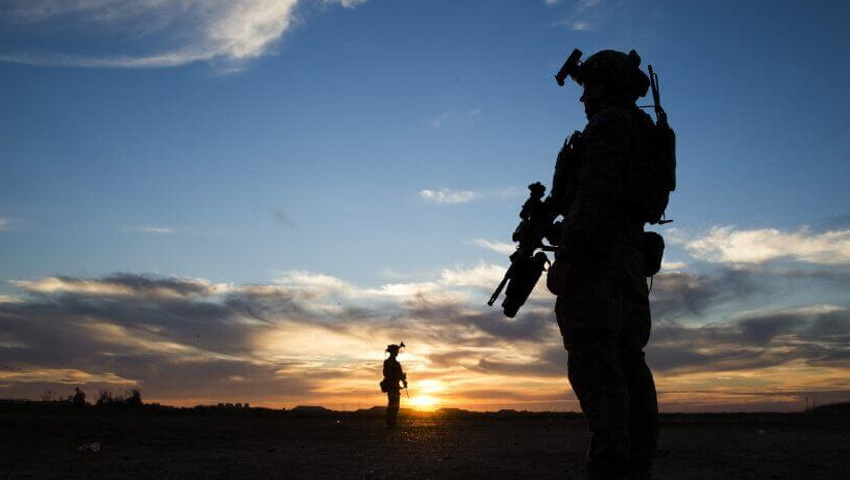Following their tumultuous withdrawal from Afghanistan, the US signalled its broad swathe of political and military vulnerabilities to the world. In an era of global competition, will these signals expedite conflict in the Indo-Pacific?
To continue reading the rest of this article, please log in.
Create free account to get unlimited news articles and more!
The United States’ withdrawal from Afghanistan appeared chaotic, haphazard and tumultuous. Few would disagree.
Not only have analysts scorned the billions of dollars of weaponry, armour, vehicles and even data laden biometric scanners left behind in the country – but they’ve depicted a more pressing issue, that the world now sees the United States as weak.
Worryingly, the United States’ adversaries may very well leverage this perception.
Examining the precursors to World Wars One and Two – and subsequent conflicts – lawyer and historian John Storey in ASPI’s The Strategist this week analysed the historical trend for states to opportunistically exploit the perceived weakness of more powerful enemies. However, Storey found that often this rampant opportunism was unable to overcome established military prowess.
“The overconfidence and misjudgement displayed by Germany and Japan in the two world wars were in large measure attributable to a perception of a lack of resolve on the part of their foes,” Storey said.
“In 1914, it wasn’t clear that Britain would fight on the side of Russia and France, and the British had made woefully inadequate preparations to do so.”
Storey notes that despite Germany’s opportunism, Britain’s perceived inability to contest the war was proven incorrect. This was again observed in World War Two.
“In 1939, Hitler had been appeased for years, which made the British and French security guarantees to Poland seem hollow. The Soviet Union had fought poorly in the 1939–40 Winter War with Finland, and Hitler perceived that one kick would knock the whole rotten structure down. Japan thought that, with the US fleet destroyed, an indulgent and lazy America would seek a peace treaty rather than fight it out.”
Storey’s comparisons to the modern era are obvious.
Perceiving US weakness and an aversion to conflict, China aligned itself closely with Afghanistan’s neighbours and moved swiftly to exploit Afghanistan’s nation’s natural resources sensing little opposition from the US.
Over recent years, China has even substantially increased its greyzone operations against the US and its allies. Few examples of this are more pertinent than the Microsoft Windows hack earlier this year, to which a chorus of Western democracies held China responsible.
However, as the US' enemies emboldened enough to start a conflict? Despite the prevailing belief in mutually assured destruction as a bulwark against conflict between nuclear holding states, Storey notes that this heuristic isn’t necessarily correct.
While Storey acknowledges that no large scale wars had broken out since the procurement of nuclear weapons capabilities, the ownership of nuclear weapons hasn’t historically deterred countries from provoking nuclear holding states.
“If the risk of nuclear annihilation could deter all acts of aggression, then nobody would ever attack a nuclear-armed foe. But nuclear-armed US military forces have previously been attacked by North Korea, China, North Vietnam, Iraq and the Taliban. Egypt and Syria attacked nuclear-armed Israel in 1973,” he says.
It is therefore an oversimplification to suggest that the mutual ownership of nuclear weapons would serve as enough of a deterrent to rule out the risk of war breaking out between the US and China. Storey thus notes that the only likely situation in which a nation would use nuclear weapons is in the event of existential threat.
“Is the loss of Taiwan an existential threat to the US? If Washington is unwilling to initiate the use of nuclear weapons to prevent Taiwan’s loss, how will China be deterred?” Storey notes.
“Even if the US still retains the conventional capabilities to defeat China, the history of the 20th century suggests that what is truly important is the aggressor’s perception of the other side’s willingness to fight. This is where the recent debacle in Afghanistan is so dangerous.”
Storey explained that this perception may spur China’s key military and political decision-makers to take drastic action, since appearing as weak may act as a pull factor to encourage Chinese aggression against Taiwan.
“After capitulating to the Taliban, who in the leadership of the Chinese Communist Party thinks Joe Biden would be willing to risk the lives of thousands of Americans to defend Taiwan? They might be calculating that, if Taiwan can only ever be brought back into the fold of the mainland by force, doing so before Biden leaves office will be the most opportune time,” Storey said.
“Of course, the loss in Afghanistan might have the same impact on Biden that the loss of Czechoslovakia had on British Prime Minister Neville Chamberlain in 1939 — a determination not to be embarrassed again.”
While perceived US weakness may expedite conflict, the US must ensure that the perceptions don’t become reality.
Get involved with the discussion and let us know your thoughts on Australia’s future role and position in the Indo-Pacific region and what you would like to see from Australia's political leaders in terms of partisan and bipartisan agenda setting in the comments section below, or get in touch with

 Login
Login







